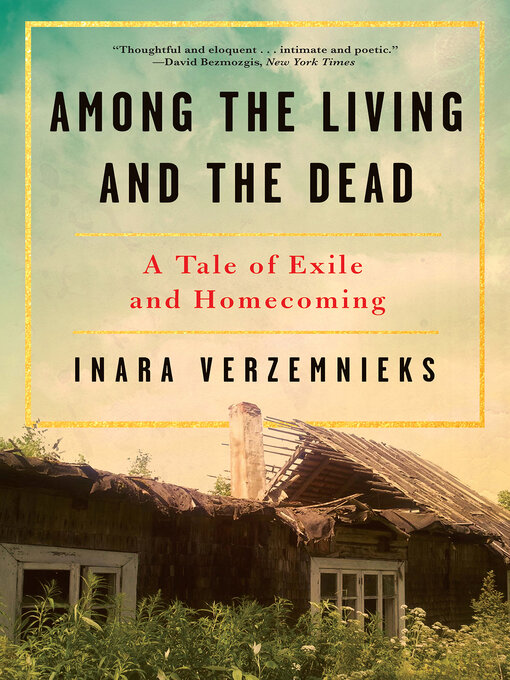A New York Times Book Review Editors' Choice
A BookPage Best Book of the Year
"This exquisitely written book shows how recovery can come generations later through rebuilding connections—to people, the natural world, the past." —Robin Shulman, Washington Post
"It's long been assumed of the region where my grandmother was born...that at some point each year the dead will come home," Inara Verzemnieks writes in this exquisite story of war, exile, and reconnection. Her grandmother's stories recalled one true home: the family farm left behind in Latvia, where, during WWII, her grandmother Livija and her grandmother's sister, Ausma, were separated. They would not see each other again for more than 50 years. Raised by her grandparents in Washington State, Inara grew up among expatriates, scattering smuggled Latvian sand over the coffins of the dead, singing folk songs about a land she had never visited.
When Inara discovers the scarf Livija wore when she left home, in a box of her grandmother's belongings, this tangible remnant of the past points the way back to the remote village where her family broke apart. There it is said the suspend their exile once a year for a pilgrimage through forests and fields to the homes they left behind. Coming to know Ausma and the trauma of her exile to Siberia under Stalin, Inara pieces together Livija's survival through years as a refugee. Weaving these two parts of the family story together in spellbinding, lyrical prose, she gives us a profound and cathartic account of loss, survival, resilience, and love.


